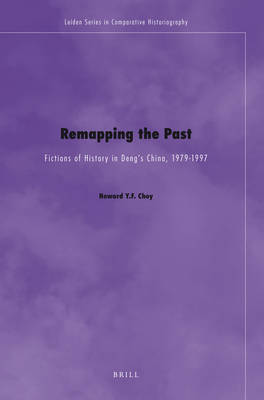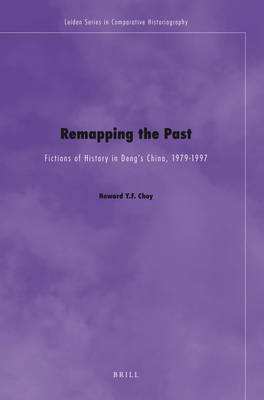
- Afhalen na 1 uur in een winkel met voorraad
- Gratis thuislevering in België vanaf € 30
- Ruim aanbod met 7 miljoen producten
- Afhalen na 1 uur in een winkel met voorraad
- Gratis thuislevering in België vanaf € 30
- Ruim aanbod met 7 miljoen producten
Zoeken
Omschrijving
The most prominent literary phenomenon in the 1980s and 1990s in China, historical fiction, has never been systematically surveyed in Anglophone scholarship. This is the first investigation into how, by rewriting the past, writers of Deng Xiaoping's reform era undermined the grand narrative of official history.
It showcases fictions of history by eleven native Chinese, Muslim and Tibetan authors. The four chapters are organized in terms of spatial schemes of fictional historiography, namely, regional histories and family romances, discourses on diaspora and myths of minorities, nostalgia for the hometown in the country and the city, as well as the bodily text and the textual body, thus broadly covering the eternal themes of memory, language, food, sex, and violence in historical writing.
It showcases fictions of history by eleven native Chinese, Muslim and Tibetan authors. The four chapters are organized in terms of spatial schemes of fictional historiography, namely, regional histories and family romances, discourses on diaspora and myths of minorities, nostalgia for the hometown in the country and the city, as well as the bodily text and the textual body, thus broadly covering the eternal themes of memory, language, food, sex, and violence in historical writing.
Specificaties
Betrokkenen
- Auteur(s):
- Uitgeverij:
Inhoud
- Aantal bladzijden:
- 278
- Taal:
- Engels
- Reeks:
- Reeksnummer:
- nr. 3
Eigenschappen
- Productcode (EAN):
- 9789004167049
- Verschijningsdatum:
- 4/06/2008
- Uitvoering:
- Hardcover
- Formaat:
- Genaaid
- Afmetingen:
- 165 mm x 241 mm
- Gewicht:
- 598 g

Alleen bij Standaard Boekhandel
+ 491 punten op je klantenkaart van Standaard Boekhandel
Beoordelingen
We publiceren alleen reviews die voldoen aan de voorwaarden voor reviews. Bekijk onze voorwaarden voor reviews.








